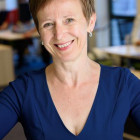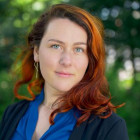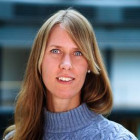Discussion Panel
World-Class Public Education? Interoperability is Key!
Date Thursday, Nov 24 Time – Room Check
If your university is part of an regional, national or international consortium or an alliance, this is a session that you do not want to miss. Our panel will give insight into one of the key challenges HE leadership and ICT teams are facing today - and why this matters for every faculty member and student using a digital platform, tool or solution. Experts will discuss the challenge of implementing interoperability: the ability of different ICT systems from different organisations to exchange data.
We are spending a great amount of resources for instance to ensure a secure transfer of student data, access to learning resources and teaching tools, and products and services from providers. These are just some of the applications of interoperability in education. If implementation is an issue, our work will not only be effected on a practical level though. Our institutions are impacted financially, and Education is too, at a fundamental, ethical level.
Outcomes
In this session you will get a sneak preview of a map and blueprint of our current complex international digital education ecosystem and you will learn about:
- An unsolved interoperability use case with a big impact on faculty and students.
- Why the implementation of interoperability in HE is lagging and why some use cases are difficult to solve.
- What policy makers and other stakeholders are currently doing to move interoperability forward.
- Who you will need to involve to address (future) interoperability challenges at and beyond your institution.

Ulrike Wild
Programme Director Educational Innovation, Wageningen University&Research, Netherlands
At Wageningen University&Research Ulrike has lead several innovation programmes with a huge impact on the organization of education: Open&Online Education, Flexibilization and now Professional Education. She leads as well a National Programme for Flexibilization, which is part of the Dutch Acceleration Plan for Educational Innovation with ICT. The Dutch pilot for introducing Microcredentials in HE has been initiated in this context. Being an innovator in heart and mind, she follows Wayne Gretzky famous saying: 'skate where the puck is going, not where it's been'.
Links

Oraz Myradov
Executive Committee of the European Students Union, European Students Union, Germany
Oraz Myradov is a member of the Executive Committee of the European Students Union representing 45 National Unions of Students from 40 European countries. Within ESU, she works on the topics of Students' Rights Advocacy, Academic Integrity, as well as Learning and Teaching and Digital Learning and Teaching. More information can be found on the official page:
https://esu-online.org/team/oraz-myradov/

Evelien Renders
Adviser International Education, SURF, Netherlands
Evelien Renders facilitates international collaboration in higher education at SURF, the cooperative organisation for IT in Dutch education and research. Complex processes, manageable data, and interoperability between systems make her happy. She keeps track of international developments in student mobility and other logistical processes. In doing so, she contributes to flexible and agile education, both in the Netherlands and abroad. With a commitment to public values and open standards, Evelien advocates for communication, trust, and collaboration between IT stakeholders in higher education.
Moderator

Channa van der Brug
Programme Manager, Hochschulforum Digitalisierung for Stifterverband, Germany
Channa van der Brug is programme manager international affairs at at Hochschulforum Digitalisierung (https://hochschulforumdigitalisierung.de/en, the German Forum for Higher Education in the Digital Age) for Stifterverband, where she is developing opportunities for international knowledge exchange on good practices for digital teaching and learning. She has more than 20 years’ of experience in the education sector and a passion for the role of technology in shaping the future of education, as well as for developing deeper understanding and connections between diverse people and institutions through engagement and dialogue.